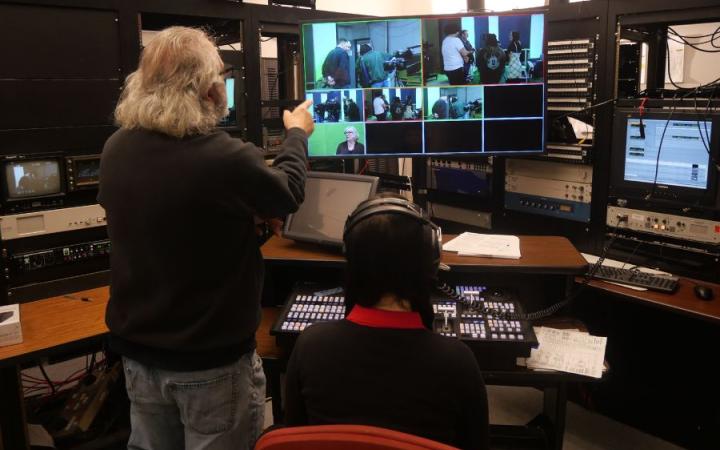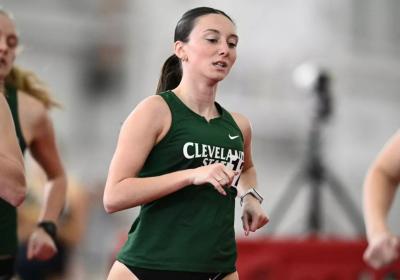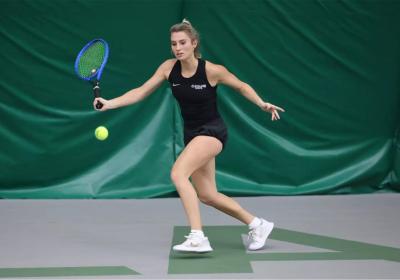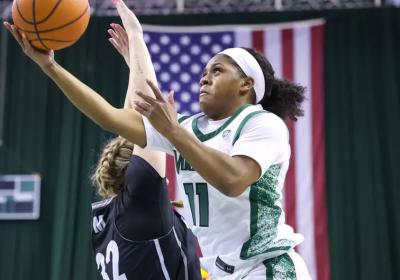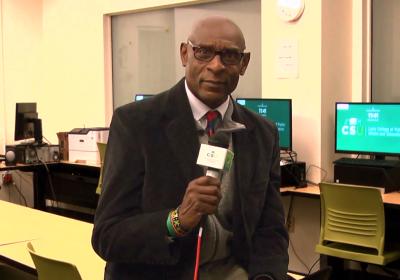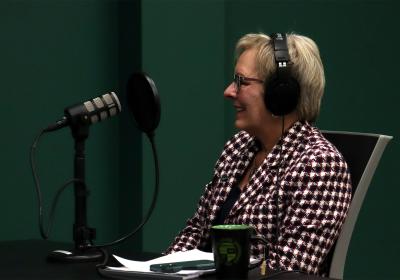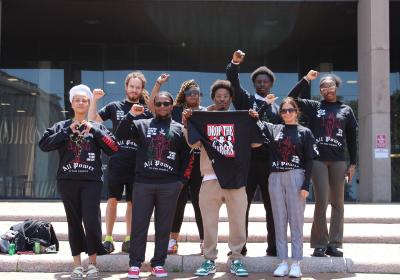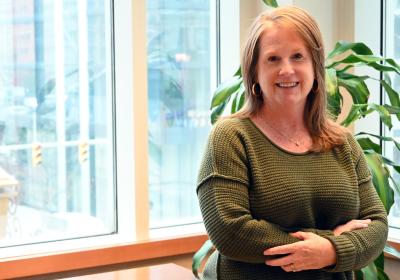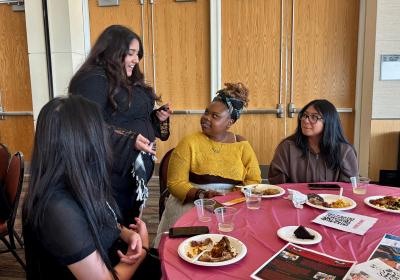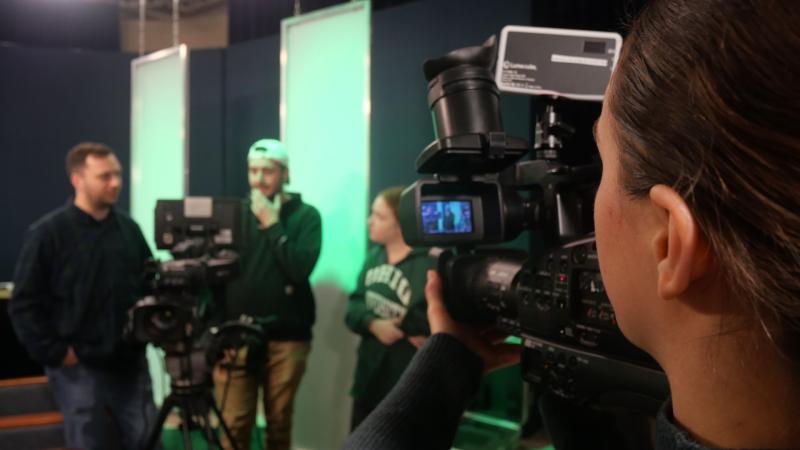
New broadcasting minor starts production at CSU
This semester, the School of Communication at CSU rolled out a brand new broadcasting minor for students who are interested in learning how to operate a camera for broadcast, produce and direct news segments and public policy conversations, conduct interviews as on-air talent and more.
The minor will require 12 credit hours over four courses, including two new courses designed specifically for the program — COM 324, Broadcast Pre-production and COM 424, Broadcast Production.
These courses work in close proximity with one another, as students plan and research for a production in COM 324, and then apply those plans during field production or live-to-tape broadcast interviews in COM 424.
While filming, students are given the chance to work as producers, directors, camera operators, editors and talent, as well as other jobs typically found in the broadcasting career path.
Most notably, this minor features a collaboration with Classic Teleproductions – a professional traveling broadcast company with 79 Emmy awards – based in Twinsburg, Ohio. Students will work with CTP on a local program titled Cleveland Conversations.
The owner of Classic Teleproductions, Mike Bacon, says that he’s excited about the collaboration with CSU because it gives him the opportunity to meet and work with students who will be entering the workforce soon.
“My goal is to find the next generation of Emmy award-winning broadcast professionals,” Bacon told The Cleveland Stater during a visit to the School of Communication studio, Jan. 30. “It’s refreshing to see students with bright eyes and their future’s ahead of them, and in some ways, it’s an honor to be able to sit down and talk to them.”
The partnership not only allows for those professional connections, but also for CSU students to be able to practice on the equipment that Classic Teleproductions is bringing to campus in its mobile broadcasting trucks.
Bacon noted that although the equipment in the OB vans is costly, it’s necessary for the students to be able to practice with it in a hands-on learning environment while being mentored by the team of professionals from Classic.
“It’s very different when you pull up in a million dollar television truck,” Bacon said. “I always tell students to stop and think. I say to them, ‘Ok, the camera you’re working on is maybe $2,000. The tripod that I’m giving you is $12,000. The lens on our sports cameras are $200,000. But we’re trusting you.’”
Once students begin to get comfortable with the equipment, Classic Teleproductions will begin shooting Cleveland Conversations in the SOC studio, and each student will be able to take on a different role in the production process.
Prof. John Ban, left, instructor of COM 424, teaches a student in the broadcasting minor how to operate a switchboard in the SOC's master control room for a live-to-tape broadcast segment, Jan. 30, 2025.
Director of the School of Communication, Dr. Robert Whitbred, says that feedback on the courses has been positive so far, which he attributes to the confidence of his course instructors, Professors John Ban, Dave Tarbett and Dr. John Jirik, and Bacon and his team.
“Between all of them, we’re talking about 150 plus years of experience in industry standards, and I’m certainly not going to do anything to impede them,” Whitbred told The Cleveland Stater. “My role really is to support them as best I can when they tell me the needs that they have.”
According to Whitbred, the minor will officially be online for the fall 2025 semester, but that students who are in the course now will still be granted certificates of completion. 18 students are taking the two classes in spring 2025.
“The two classes that students are taking right now are going to be on the schedule both fall and spring of next year, and it’s full steam ahead from here,” Whitbred said.
Due to student interest and the current success of the minor, Whitbred is hopeful for the addition of a new broadcasting major, which he says may come a year after the launch of the minor.

